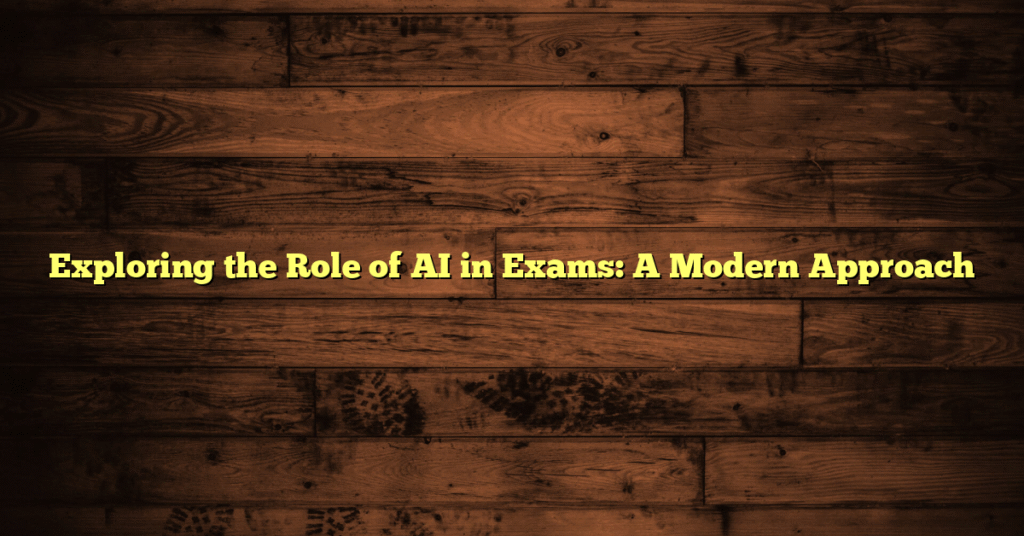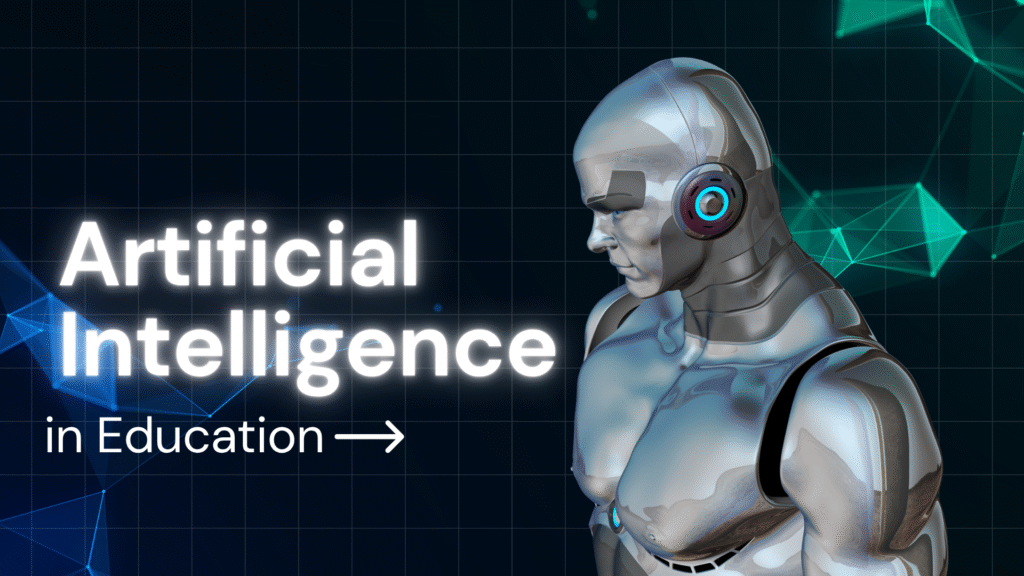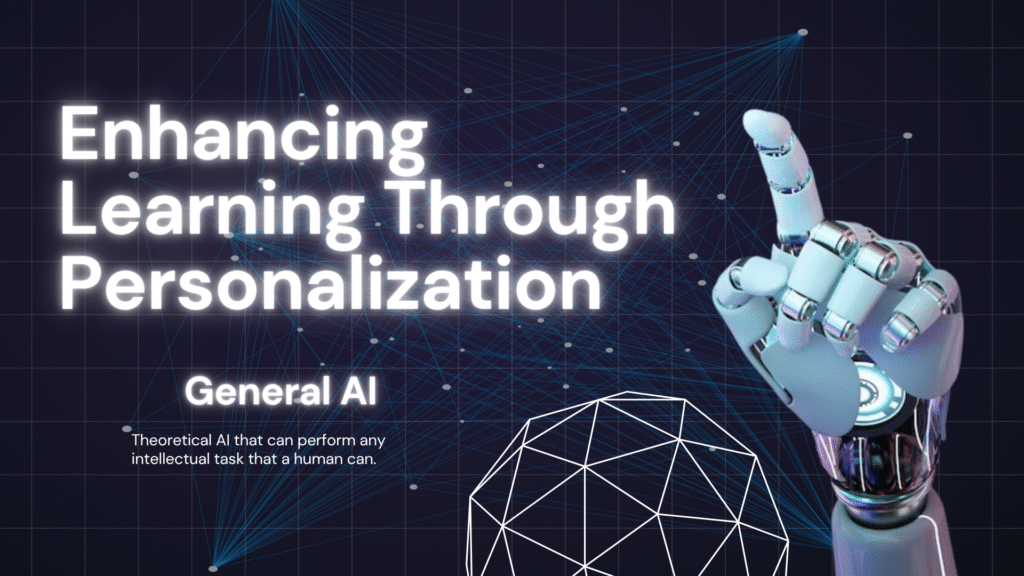As tutorial establishments an rising variety of embrace technology, the combination of Artificial Intelligence (AI) into assessments is remodeling the landscape of examinations. With an array of gadgets designed to bolster the testing expertise for university school faculty college students and research processes for educators, the place of AI in exams can’t be missed. This textual content material materials supplies delves into how AI is shaping examinations, its implications for varsity school school faculty college students and institutions, and what the long run holds.
Understanding AI in Exams
Synthetic Intelligence in exams refers to using algorithms and machine discovering out fashions to help in fairly a couple of parts of assessments, together with question generation, grading, and personalized learning methods. AI know-how can analyze huge parts of data to adapt the testing expertise, delivering tailor-made evaluations that could better replicate a pupil’s understanding and capabilities.
The Evolution of Examination Strategies
Historically, exams have relied intently on pen-and-paper codecs, presenting challenges similar to information grading, difficulties in sustaining safety, and biases in evaluating pupil effectivity. Nonetheless, the appears to be like of on-line testing platforms and AI gadgets has enabled a further dynamic technique to assessments.
For instance, platforms like Khan Academy and Coursera current AI-driven assessments which could present on the spot methods, adjusting the issue of questions based totally absolutely on a pupil’s effectivity. As such, the tutorial panorama is shortly evolving to prioritize effectivity, relativity, and equity.
Advantages of AI-Powered Assessments
1. Enhanced Personalization
AI algorithms can customise assessments to meet the distinctive discovering out varieties and needs of scholars. By analyzing a pupil’s earlier effectiveness and discovering patterns, AI can create tailor-made query gadgets that precisely replicate a person’s strengths and weaknesses.
Event: If a pupil persistently struggles with algebra, AI can alter subsequent examination content materials, supplies provide gives to incorporate extra algebra-related questions, offering targeted observe.
2. Environment Good Grading Processes
Automated grading packages can drastically reduce the time educators spend evaluating exams. Using machine learning, AI gadgets can efficiently analyze responses, notably in multiple-choice and short-answer formats. This notonlyy accelerates the grading course of nonetheless also minimizes human error, offering a further intention evaluation.
Stat: Based mostly totally on a report by McKinsey & Company, automating grading might save educators as a whole lot as 30% of their time, letting them deal with bettering their instructing methods.
3. Improved Safety and Integrity
The implementation of AI in exams enhances the integrity of assessments by incorporating superior technologies such as biometric authentication and plagiarism detection. These gadgets validate a pupil’s identity and guarantee that the work submitted is unique, thereby mitigating the dangers of dishonesty.
For instance, platforms like Turnitin income from AI-driven algorithms evaluate written responses for similarities with current gives, selling tutorial honesty.
4. Exact-Time Concepts and Adaptive Discovering
One among many important necessary benefits of AI in exams is the provision of real-time methods. students should buy on the spot outcomes that spotlight areas of enchancment, facilitating an adaptive discovering out expertise.
For instance, platforms like Edmodo leverage AI to offer fast insights into pupil effectivity all by the evaluation process, permitting educators to take care of their instructing strategies promptly.
Challenges and Limitations of AI in Exams
1. Fairness and Entry
Whereas AI enhancements can improve tutorial experiences, they might furthermore exacerbate current disparities. Not all students have equal access to the required know-how or the web, which might prohibit their ability to learn from AI-powered assessments. Addressing these inequalities is essential in fostering a further inclusive tutorial atmosphere.
2. Reliability of AI Units
The efficacy of AI gadgets in exams intently relies upon upon the algorithms’ design and coaching information. Inaccuracies in programming could finish in biased grading or inappropriate query changes. Frequent analysis and enchancment of those packages are essential to make sure their reliability.
3. Potential Lack of Essential Pondering Expertise
There’s a concern that over-reliance on AI for assessments might hinder the development of necessary critical thinking and problem-solving skills in school, college, and university students. If AI gives decisions too readily, students could not work collectively deeply with the fabric or downside themselves academically.
Case Evaluation in AI-Pushed Evaluation
1. Duolingo English Check
Duolingo has revolutionized language testing by way of its AI-powered English proficiency analysis. Providing a low-cost, accessible different to easy language exams, it adapts in real-time to the patron’s capabilities, guaranteeing a tailor-made and correct analysis of language expertise while offering fast results.
2. ProctorU and Online Proctoring
ProctorU makes use of AI-driven proctoring know-how to strive students all by online examinations. Using facial recognition and habits evaluation, the platform ensures that school saculty students adhere to examination integrity while sustaining a seamless testing experience.
The Approach Forward for AI in Exams
Embracing Hybrid Fashions
The long run might even see a hybrid technique the place customary examinations coexist with AI-powered assessments. Faculties might earnings from integrating each codecs, catering to fairly a couple of discovering out wants whereas guaranteeing full evaluations.
Frequent Evolution of AI Algorithms
AI utilized sciences are typically evolving. Future developments could embody extra delicate algorithms that could assess open-ended questions and even embody digital augmented realities for smart examinations. Enhanced methods, mechanisms, and personalised discovery pathways might radically reshape the tutorial panorama.
Conclusion: Embracing the Approach Forward for AI in Exams
The combo of AI in exams is not merely going to be an improvement, nonetheless a transformative force poised to reshape tutorial landscapes. Whereas challenges exist, the advantages—similar to personalised discovering out experiences, ambiance good grading, and improved safety—are pivotal in stylish training. As establishments proceed to implement AI gadgets, it’s critical to put winup a balanced technique that fosters equitable entry and encourages necessary thinking amongst school faculty college students.
Takeaway: Embracing AI in exams presents a golden fairly a couple of to bolster tutorial practices. Nonetheless, educators and establishments ought to be vigilant in guaranteeing these utilized sciences serve students equitably while preserving the essence of learning. By staying educated about technological advances and their implications, we’re able to better prepare students for the long run.
For added insights into the combination of AI in training, go to EdSurge or EdTech Magazine. These platforms present up-to-date information, analysis, and case evaluation associated with technology in training.



